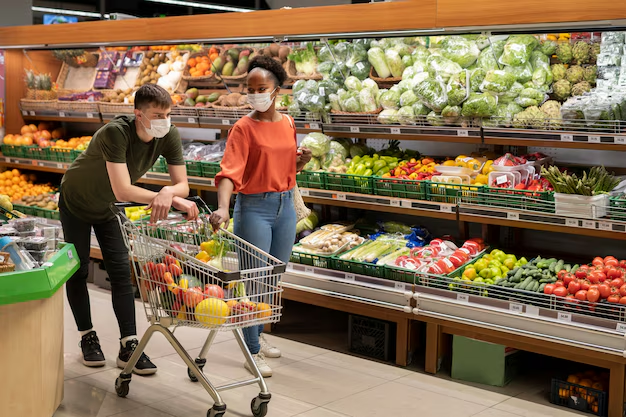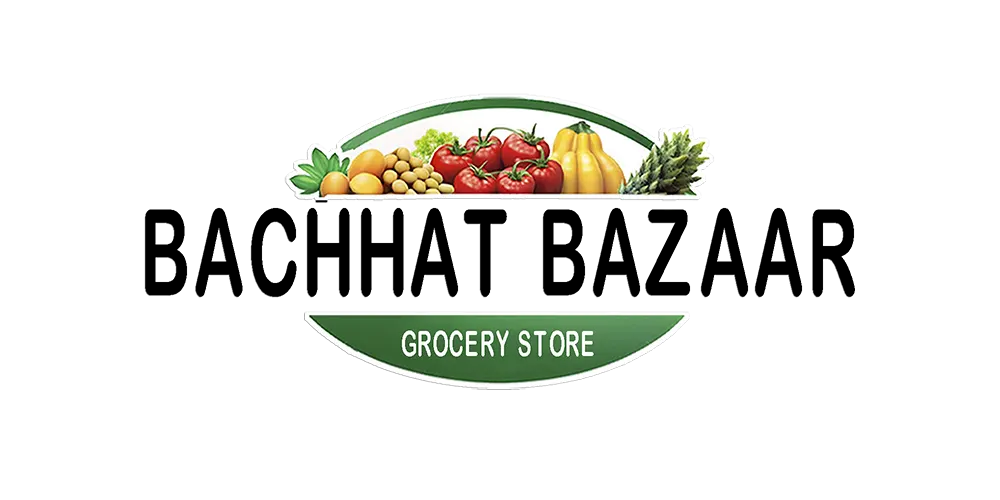
In recent years, there has been a noticeable shift in consumer behavior towards healthier, environmentally conscious choices. One of the key areas where this shift is evident is in the rise of organic and sustainable bulk groceries. As people become more aware of their environmental footprint and the importance of consuming wholesome, chemical-free foods, organic and sustainable bulk grocery shopping has emerged as a growing trend. In this blog, we’ll explore why organic and sustainable bulk groceries are becoming increasingly popular and why this trend is here to stay.
What Are Organic and Sustainable Bulk Groceries?
Before diving into the reasons behind their growing popularity, it’s essential to understand what organic and sustainable bulk groceries entail. Organic groceries are those produced without synthetic pesticides, genetically modified organisms (GMOs), or chemical fertilizers. Instead, organic farming relies on natural methods, such as composting and crop rotation, to maintain soil health and produce crops.
Sustainable groceries, on the other hand, focus on minimizing environmental impact throughout the supply chain. This can include practices like reducing water consumption, using renewable energy sources, and promoting fair labor practices. When we talk about “bulk groceries,” we refer to items sold in large quantities, often without packaging, allowing customers to purchase exactly the amount they need.
By combining these concepts, organic and sustainable bulk groceries not only offer healthier, chemical-free food options but also promote an eco-friendly shopping experience that reduces packaging waste.
Why Are Organic and Sustainable Bulk Groceries Becoming Popular?
Several factors are contributing to the increasing demand for organic and sustainable bulk groceries. From environmental concerns to health benefits, let’s look at the main reasons behind this growing trend.
1. Environmental Awareness
In today’s world, environmental issues like climate change, plastic pollution, and deforestation are becoming increasingly alarming. More consumers are recognizing the urgent need to adopt eco-friendly habits. Organic and sustainable bulk groceries offer a way to reduce one’s carbon footprint. Since bulk goods often come without unnecessary packaging, shoppers can reduce the amount of plastic waste they generate. Moreover, the emphasis on sustainable farming practices means less harm to the environment through reduced pesticide use, lower carbon emissions, and less water consumption.
Many grocery stores now encourage customers to bring their own reusable containers for bulk items, further minimizing plastic waste. This eco-conscious approach resonates with a growing demographic of consumers who want to make greener choices.
2. Health Benefits
Health is another significant factor driving the popularity of organic and sustainable groceries. Organic foods are free from harmful pesticides, synthetic fertilizers, and GMOs, which many consumers believe can negatively affect their health. Studies have shown that organic produce tends to have higher levels of certain nutrients, such as antioxidants, than conventionally grown crops. Additionally, organic meats and dairy products often come from animals that have been raised without antibiotics or growth hormones.
Shoppers who prioritize organic foods often feel more confident about the quality of the food they’re consuming. By purchasing bulk organic groceries, they can enjoy these health benefits while also avoiding highly processed, packaged foods that can contain additives and preservatives.
3. Cost-Effective Shopping
While organic foods are often considered more expensive, bulk shopping can help reduce costs. Purchasing groceries in bulk allows customers to buy only the quantity they need, minimizing food waste and lowering overall expenses. Since bulk items don’t have the added cost of packaging, they are often priced more affordably compared to their packaged counterparts.
Bulk shopping also allows customers to experiment with new products without committing to a large, packaged purchase. For example, if you want to try a new type of grain or spice, you can purchase just a small amount to start. Over time, buying in bulk can lead to significant savings, especially for pantry staples like rice, flour, nuts, and beans.
4. Reducing Food Waste
Food waste is a massive problem in many parts of the world. By buying in bulk, consumers have more control over the amount of food they purchase, helping to reduce the likelihood of excess food being thrown away. According to the Food and Agriculture Organization of the United Nations, approximately one-third of all food produced globally is wasted. Shopping for bulk groceries can help tackle this issue by allowing shoppers to buy only what they need, reducing the chance of food spoiling before it’s used.
Additionally, many bulk grocery stores work with local farmers and producers, meaning fresher products with fewer preservatives and less waste. Supporting local, sustainable farming can also reduce food miles, the distance food travels from farm to table, further decreasing its environmental impact.
5. Supporting Ethical and Sustainable Brands
Another reason behind the rise of organic and sustainable bulk groceries is the increasing consumer interest in supporting brands that prioritize ethical practices. As people become more conscious of the origins of their food, many seek out companies that align with their values. Sustainable and organic farmers often practice fair trade and use environmentally responsible methods to produce food.
By shopping for organic and sustainable bulk groceries, consumers are voting with their wallets, supporting a shift towards more ethical and eco-friendly business practices. This growing demand encourages more companies to adopt sustainable measures, helping to create a positive feedback loop where eco-conscious brands thrive and grow.
6. Building a Connection with Food
In a world where so much of our food is processed and packaged, buying organic and sustainable bulk groceries can help foster a deeper connection with what we eat. When shopping for bulk items, consumers are often more mindful of the ingredients they’re purchasing. This encourages a return to more traditional, wholesome cooking methods, where fresh ingredients take center stage.
Many bulk grocery stores also offer an interactive shopping experience. For example, customers may scoop their grains, beans, or spices into containers, creating a hands-on approach that’s much different from grabbing a pre-packaged item off the shelf. This tactile experience can make shopping for food more enjoyable and rewarding.
7. Building a Community of Conscious Consumers
The popularity of organic and sustainable bulk grocery shopping has also helped create a community of conscious consumers. Farmers’ markets, co-ops, and bulk grocery stores often foster a sense of shared values, where like-minded individuals come together to make healthier, more eco-friendly choices. This community spirit helps spread awareness about the benefits of sustainable shopping and encourages others to adopt similar habits.
These spaces often provide more than just groceries—they also serve as educational hubs where consumers can learn more about organic farming, sustainable practices, and how to make a positive impact on the environment through their daily choices.
Final Thoughts
The growing popularity of organic and sustainable bulk groceries is a reflection of a broader shift towards healthier, more environmentally responsible lifestyles. With the many benefits they offer—from reducing waste to supporting ethical farming practices—it’s no wonder more and more people are turning to bulk groceries as their preferred way to shop.
As awareness of the environmental and health impacts of our food choices continues to grow, we can expect the demand for organic and sustainable bulk groceries to keep rising. Whether you’re looking to reduce your carbon footprint, make healthier choices, or support ethical brands, this shopping trend offers a practical and impactful solution. By making the switch to organic and sustainable bulk groceries, you’re not only benefiting yourself but also contributing to a more sustainable future for our planet.

